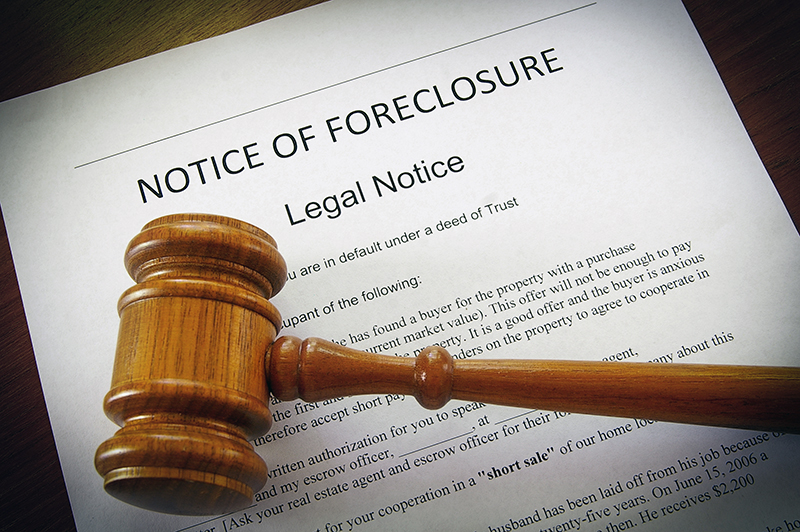
The foreclosure process involves both state and federal law. The complex system of law regulating foreclosures seeks to create a fair and expeditious process for both the mortgagor and the financing institution. In some cases, the applicable federal law will come into play to provide additional protections for homeowners.
Federal Bankruptcy Protections
The first type of protection provided by federal law is found in bankruptcy. When a struggling homeowner files a petition for bankruptcy the foreclosure process comes to a halt. In legal terms, the court issues a “stay” of the proceedings. The stay usually remains active until the bankruptcy court can resolve its petition. A stay may be issued for a Chapter 7 or Chapter 13 bankruptcy petition.
What happens after a stay depends on the circumstances. In cases where a Chapter 7 bankruptcy petitioner does not have equity in the property the court will allow the financing company to foreclose on the loan. If a homeowner has equity it is likely the home will be sold by the trustee.
Another federal law that impacts foreclosure is the Soldiers and Sailors Relief Act. The protection offered under this act applies only to service-members. By using this section a mortgagor who is on active duty can request to set aside a default judgment in a foreclosure proceedings. All future court proceedings can only occur if the service-member is in court or has an attorney representing him or her. Due to this, mortgage lenders are prevented from executing a foreclosure by power of sale. The experienced attorney at the Sandy law office cautions that Utah is a power of sale state. However, if a Utahan is actively serving in the military he or she may have the ability to receive a stay for the remainder of the military service obligation.
Dodd-Frank Act
The Dodd-Frank Act is a set of mortgage servicing regulations that went into effect in 2014. The act is a direct response to the mortgage crisis that occurred from 2007 to 2010. The laws protect mortgagors by ensuring that their loans receive proper servicing. The regulations also require lenders to set up payment programs or to offer modifications for certain borrowers. Furthermore, the rules address how servicers will be accountable for failing to follow the rules.
Dodd-Frank mandates that servicers perform early intervention techniques to help borrowers who have fallen behind. Servicers must make the initial contact within 36 days of the default. Servicers may need to make additional contact depending on the length and frequency of the delinquency. The servicing company must also provide loss mitigation options to the homeowner within a 45 day period.
This act also affects when servicers can begin the foreclosure process. Servicers must wait 120 days from the time of delinquency to begin a foreclosure. However, lenders may not be able to begin foreclosure under other circumstances. For example, foreclosure is not possible when a borrower has a pending loss mitigation application.
Get Foreclosure Help!
Going through a foreclosure is a difficult process. It helps if you work with a qualified real estate lawyer to make sure your interests are protected. If you need to contact a real estate attorney for any reason call T.R. Spencer Law Office. Find out if you qualify for state or federal protections.